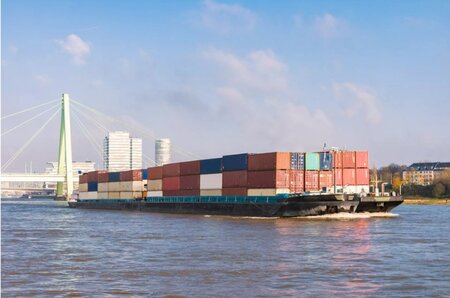Understanding sustainability regulation
As a result of escalating concerns over the consequences of global climate change, various regulatory frameworks have emerged. As scientific consensus solidifies around the human influence on rising temperatures, policymakers worldwide are facing an urgent mandate to design and implement measures that curtail carbon emissions, promote sustainable practices, and safeguard vulnerable ecosystems.
The complexity of climate change regulation lies in its dual role as both a catalyst for environmental preservation and a catalyst for economic transformation.
Contact us
International treaties
1992 - The United Nations Framework Convention on Climate Change (UNFCCC)
The first international agreement on coordinated action to tackle climate change was the UN Framework Convention on Climate Change (UNFCCC), which 154 governments signed at the Earth Summit in Rio de Janeiro in 1992. The convention committed the signatory governments to establish national inventories of their greenhouse gas emissions, effectively setting a baseline level of emissions. It also required developed nations to stabilize their national emissions of greenhouse gases at 1990 levels by 2000, in effect halting the historical rise in emissions up to that date.
1997 - Kyoto Protocol
The Kyoto Protocol is the commitment of industrialised countries to work together to agree on greenhouse gas reduction measures for international shipping through their membership of the IMO.
2015 - The Paris Agreement
The Paris Agreement was signed by governments of over 190 nations in 2015, who agreed to limit global warming to less than 2 degrees C and attempt to limit it to 1.5 degrees C above pre-industrial levels. The agreement also extended the scope of reduction commitments to include emissions from international shipping and aviation. It mandated the International Maritime Organisation (IMO) and the International Civil Aviation Organisation (ICAO) to develop and implement binding measures to achieve comparable reductions in these modes of transport.
The Paris Agreement
The Paris Agreement remains the principal international treaty guiding national government actions on climate change and global warming.
Intergovernmental Panel on Climate Change (IPCC)
The Intergovernmental Panel on Climate Change (IPCC) is a globally recognized scientific body established in 1988 by two United Nations organizations: the United Nations Environment Programme (UNEP) and the World Meteorological Organization (WMO). The primary purpose of the IPCC is to assess and communicate the scientific knowledge related to climate change, its potential impacts, and potential adaptation and mitigation strategies.
The establishment of the IPCC was in response to growing concerns about the impacts of human activities on the Earth's climate system. Its formation came at a time when the international community was becoming increasingly aware of the potential consequences of greenhouse gas emissions, deforestation, and other human activities that contribute to global warming.
The IPCC operates through a process that involves thousands of scientists and experts from around the world. These experts collaborate to review and synthesize the latest scientific research on climate change. The organization produces comprehensive assessment reports at regular intervals, summarizing the state of knowledge about various aspects of climate change, including its causes, potential impacts on ecosystems and societies, and strategies to address the issue.
The most prominent and influential outputs of the IPCC are its assessment reports, which are divided into three working groups.
Working Group I (WGI)
Focuses on the physical science basis of climate change. It assesses the mechanisms and drivers of climate change, including the role of greenhouse gases, aerosols, and other factors that influence Earth's energy balance.
Working Group II (WGII)
Examines the impacts, adaptation, and vulnerability related to climate change. It assesses how various sectors, ecosystems, and human societies are likely to be affected by changing climate conditions and how they might adapt.
Working Group III (WGIII)
Deals with the mitigation of climate change. This group evaluates strategies and policies for reducing greenhouse gas emissions and explores the potential for transitioning to more sustainable energy and land-use practices.
The IPCC's findings and reports are crucial in informing policy decisions and international negotiations aimed at addressing climate change. The organization's work has played a pivotal role in shaping global agreements such as the United Nations Framework Convention on Climate Change (UNFCCC) and the Paris Agreement.
Conference of the parties (COP)
The COP is the supreme decision–making body of the UNFCCC. The 1995 Conference of the Parties (COP 1) was a crucial event within the framework of the United Nations Framework Convention on Climate Change (UNFCCC). The UNFCCC is an international treaty aimed at addressing global climate change by fostering international cooperation and collective action.
COP 1 took place in Berlin, Germany, from March 28 to April 7, 1995. Its primary objective was to lay the groundwork for the implementation of the UNFCCC, which had been adopted at the Earth Summit in Rio de Janeiro in 1992. The conference brought together representatives from nearly 170 countries, along with various international organizations, non-governmental organizations (NGOs), and other stakeholders.
Key outcomes and achievements of the 1995 COP 1 include:
Berlin Mandate
The conference produced what is known as the "Berlin Mandate." This mandate set the stage for negotiations aimed at establishing legally binding emission reduction targets for developed countries. It also introduced a process to involve developing countries in mitigation efforts, albeit with a lesser degree of responsibility due to their different economic circumstances.
Establishment of Subsidiary Bodies
COP 1 led to the creation of two subsidiary bodies that continue to play pivotal roles in climate negotiations: the Subsidiary Body for Scientific and Technological Advice (SBSTA) and the Subsidiary Body for Implementation (SBI). These bodies provide technical and procedural guidance to support the implementation of the UNFCCC.
Review of National Communications
Countries were encouraged to submit national communications detailing their greenhouse gas emissions, mitigation strategies, and vulnerability assessments. These communications aimed to foster transparency and accountability among signatory nations.
Adoption of Work Plan and Budget
COP 1 adopted a work plan and budget for the UNFCCC Secretariat, which supports and facilitates the implementation of the convention's goals.
Commitment to Capacity Building
Recognizing the varying levels of capacity among countries, especially developing nations, COP 1 emphasized the importance of capacity-building initiatives to help these countries effectively participate in climate-related activities and implement measures.
While COP 1 itself did not result in binding emissions reduction targets, it laid the foundation for subsequent COPs and negotiations, shaping the ongoing global discourse on climate change. The Berlin Mandate's distinction between developed and developing nations in terms of responsibilities eventually led to more comprehensive agreements, such as the Kyoto Protocol and the Paris Agreement, which set specific emission reduction targets and broader goals for addressing climate change on a global scale.





